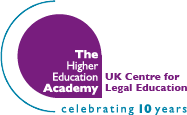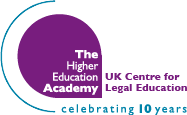Indebted to the experience: community engagement and the inspired law student

contributors | abstract | presentation | biographies
Contributors
Susan Prince (University of Exeter)
Format
Paper presentation
Abstract
This paper considers how a law school can create innovative and engaged learning opportunities for students to both enhance the student experience and also contribute towards reducing unmet legal need within the community, outside the ambit of a traditional legal clinic. It considers whether this should be a necessary part of a broad law programme.
The need for law students to engage with the community, at a variety of different levels, increases in a period of recession. The Citizens Advice Bureau reports that the number of debt enquiries is increasing exponentially, year-on-year. The government report, ‘Higher Ambitions’, stresses the need for universities to ensure that students get the most from both their academic and extra-curricular experiences whilst at university (BIS, 2009). This report also recognizes that higher education does not only benefit those who are engaged with its principle function as educators and students; it can also make a significant contribution to the wider community. Worldwide, there is also an increasing acknowledgement of the importance of the link between universities and the community (e.g., Pro Bono Students Canada). In the 21st Century, the Organisation for Economic Co-operation and Development (OECD) reports that collaboration, rather than dissemination, is seen as an increasingly important element of the higher education learning process. Traditionally, universities only engaged with their own national and international and academic or research communities, and did not view themselves as part of their immediate locality. The government view is that, ‘Our universities are a gateway through which we, as individuals and as a society, can engage with the world outside our borders…’.
In addition, we know that students not only learn but also develop more confidently as people through the work they do in the community. John Dewey argued that the quality of any learning comes from experience. He developed, ‘…a philosophy of education based upon a philosophy of experience…’. Reflection upon an experience and the actions that comes from experience is where Dewey believed that true learning happens. We learn to solve problems in order to achieve a desired outcome and ultimately to make ourselves better people. This is an essential quality for undergraduate law students. Reflection on each experience leads us to make connections with other experiences and ideas and ensures continuous learning.
Law schools in the United States are required to provide pro bono or other associated experiences for their students (see standard 302(b) (1) and (2) ABA Standards for the Approval of Law Schools) to enable them to engage with live clients or real-life practical experience. In the UK a number of universities have well-established law clinics and in the last year or so quite a few more are introducing more experiential learning to their law curriculum. The University of Hull and the University of York are examples of law schools which have recently opened law clinics.
In Exeter, the law school has run a project which offers an innovative and sustainable approach to engaging law students within their local communities. It develops students’ skills and contributes towards public education as well as engaging different elements of the community. This project enables pupils at local schools to find out about debt from law students through active learning and cascade mentoring. This project contributes towards the scholarship of learning law as it offers an easy and sustainable method to make a difference in the community. This paper asks whether such projects which offer students a 3D perspective on their academic studies and build enthusiasm and knowledge in the community should, in the 21st century, be an essential and required part of an undergraduate law curriculum.
Presentation
Short biographies of panel members
Susan Prince is a Senior Lecturer and also Director of Education in the Law School at the University of Exeter. She has been involved in a number of learning and teaching initiatives on teamwork, reflection and personal development. She has previously acted as the co-ordinator of the UKCLE national Working Group on Personal Development Planning. In March 2010 she was invited to Downing Street, to give a presentation on her work on debt literacy and pro bono in Exeter, as part of the Attorney-General’s Youth Network contributing to public legal education. She has also conducted and published research on court-based civil mediation for the Civil Justice Council and Ministry of Justice and also researched mandatory mediation in Ontario, Canada and Florida, USA.
Last Modified: 11 February 2011



Comments
There are no comments at this time